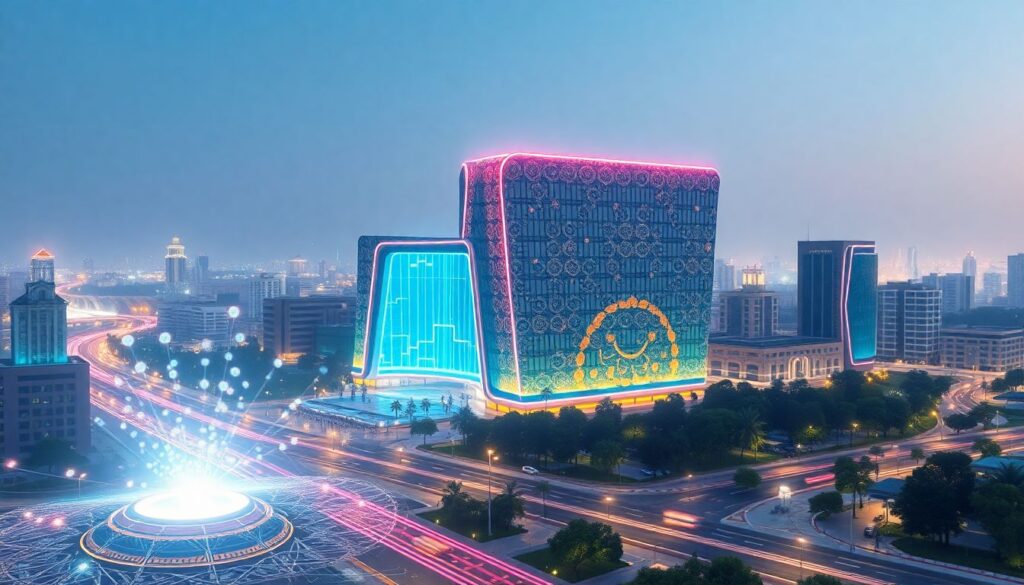Pakistan’s technological future is brightening as it turns its eyes toward artificial intelligence (AI). The declaration of the country’s first AI university by Chief Minister Maryam Nawaz is a landmark move. This initiative is set to fill the AI skills gap and prepare Pakistan for global competition.
This article explores the exciting details of this groundbreaking project and its anticipated effects on the nation’s economy and tech sector.
The Genesis of Pakistan’s First AI University
CM Maryam Nawaz’s Vision
Chief Minister Maryam Nawaz envisions an institution that will not only educate the next generation of AI experts but also provide a platform for innovation and collaboration. In her recent press release, she emphasized the importance of AI in modern economies. The aim is to ensure that Pakistan does not lag behind as the AI revolution unfolds worldwide.
Location and Infrastructure
The First AI University is set to be established in Lahore, known as Pakistan’s educational hub. Plans include state-of-the-art facilities with dedicated labs for machine learning and data science. The infrastructure will promote hands-on learning, essential for developing practical skills in AI.
Funding and Investment
The projected budget for the university is significant, with initial estimates suggesting an investment of around $100 million. Funding will come from a mix of government resources and partnerships with private tech firms. This collaborative approach will ensure sustainable financial backing for the university’s ongoing operations.
Curriculum and Educational Approach
Specialized AI Programs
The university will offer specialized programs in various fields of AI, including:
- Machine Learning
- Deep Learning
- Computer Vision
- Natural Language Processing
These programs are designed to equip students with the skills needed for the rapidly evolving tech landscape.
Faculty and Research
Recruiting top-tier faculty is a priority. The university plans to attract both local and international experts. Research initiatives will be encouraged, creating a dynamic environment for innovation. Collaborations with established global institutions are also on the radar, enhancing the university’s reputation.
Industry Partnerships
Partnerships with tech companies will facilitate practical experiences. Students will benefit from internships and real-world projects. These interactions will also play a role in shaping the curriculum, ensuring it remains relevant to industry needs.
Impact on Pakistan’s Economy and Workforce
Bridging the AI Skills Gap
Pakistan faces a significant shortage of AI professionals, which hinders its tech sector. The new university aims to directly address this gap. Currently, less than 5% of graduates specialize in AI-related fields, yet the demand for these skills is skyrocketing.
Boosting Technological Innovation
Establishing this First AI University can catalyze innovation in Pakistan’s tech industry. Countries like India and China have successfully leveraged AI to fuel technological growth. By following suit, Pakistan can stimulate local startups and tech initiatives.
Attracting Foreign Investment
A well-trained workforce in AI is a magnet for foreign investment. Investors look for countries that can provide skilled talent. Pakistan’s First AI University graduates could play a pivotal role in attracting international tech firms to set up operations in Pakistan.
Challenges and Opportunities
Infrastructure Development
While exciting, the project faces challenges. Building the necessary infrastructure takes time and resources. Ensuring that all facilities meet the high standards required for AI research is a primary hurdle.
Curriculum Development
Creating a curriculum that aligns with global standards poses another challenge. It must be competitive and adaptable to the fast-changing landscape of AI. Engaging industry experts in curriculum design will be crucial.
Talent Retention
Once graduates are trained, retaining them in Pakistan is essential. Many skilled individuals seek opportunities overseas. It will be vital to create an environment that encourages innovation and offers attractive career paths.
A Glimpse into the Future of AI in Pakistan
Global Competitiveness
The establishment of this AI university can significantly enhance Pakistan’s competitiveness on the global stage. By producing highly skilled graduates, Pakistan can position itself as a leader in the AI sector.
Societal Impact
Beyond economics, this initiative holds the potential to address local challenges. AI can offer solutions in healthcare, agriculture, and education, positively affecting everyday lives.
Long-Term Vision
The university aims to create a sustainable ecosystem that nurtures talent and fosters innovation. Over the long term, it can become a center of excellence in AI education, shaping the future of technology in Pakistan.
Conclusion:
The launch of Pakistan’s first AI university marks a pivotal moment in the country’s journey toward technological advancement. This initiative promises to generate significant economic growth and job creation while equipping the workforce with crucial AI skills.
By venturing into this new frontier, Pakistan stands on the cusp of a technological transformation that could reshape its future. The potential for progress is immense, and this project could be the turning point in Pakistan’s tech evolution.

